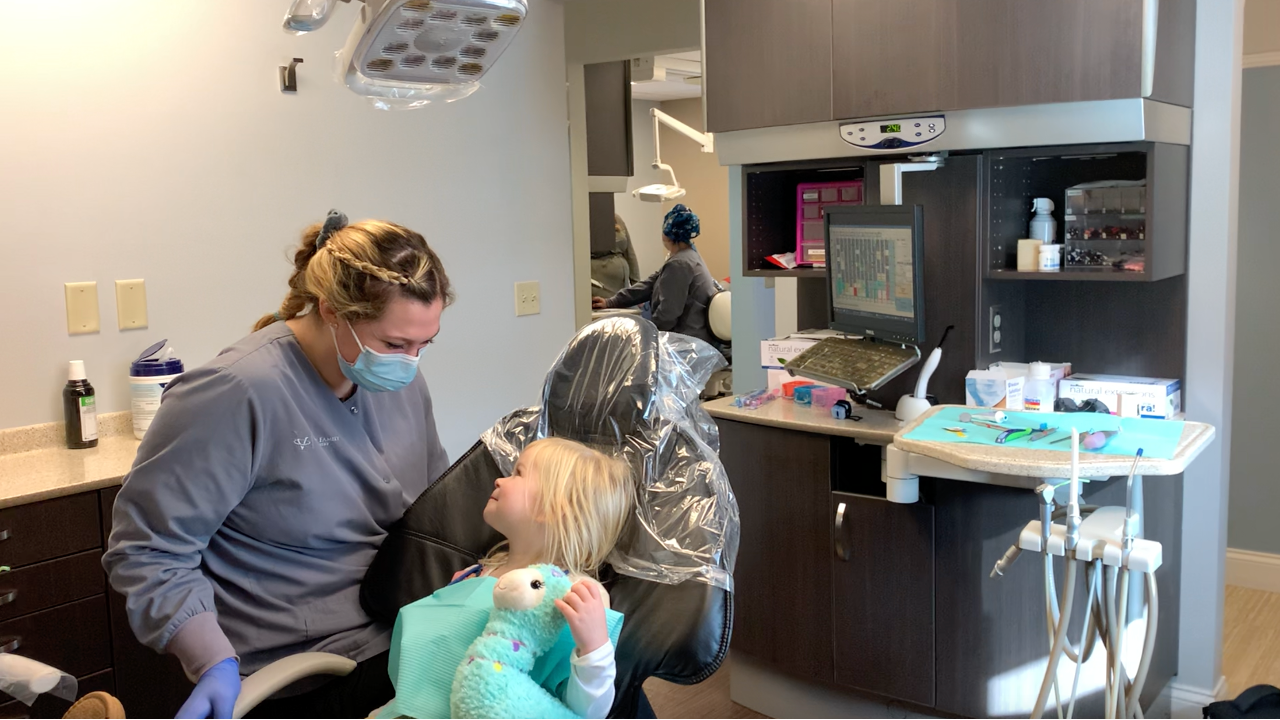Occupational Growth for Dental Assistants
Jul 12, 2022
Dental assistants are integral to the dental team. Their duties are among the most comprehensive and varied according to the American Dental Association. Dental assistants can involve duties inside and outside the operatory, which often makes them the most versatile member of the dental team.
Not only do they assist dentists during treatment, but they also take x-rays, impressions, and digital scans. They are often the first face a patient sees in the operatory, which is why they are skilled communicators who know how to answer questions and create a calming office environment for nervous patients. Outside the operatory, dental assistants wear many hats as well such as ordering supplies, coordinating treatment, and taking lead in organizing OSHA and infection control protocol and records within their practices.
A dental assistant’s job is valuable, rewarding, and in demand. In fact, the U.S.Bureau of Labor and Statistics says that dental assisting jobs are expected to grow 11% over the decade 2020-2030 with 44,000 openings each year. With growth comes career opportunity in dental assisting, which is always worth investigating.
Exploring Traditional Career Paths
The first step in exploring your choices for occupational growth as a dental assistant is to know your state requirements for practice. For example, Pennsylvania has no educational requirement for entry-level assisting but does offer paths toward advanced dental assisting duties and titles through meeting additional training and certification requirements for radiology certification and EFDA training & licensure.
- Radiology Certification allows dental assistants to safely and legally operate x-ray equipment while performing radiographs on their patients. It is a great first step in occupational growth because it expands duties, which often leads to a salary increase.
- EFDA Training allows dental assistants to not only expand their scope of care but also add an additional title to their position. EFDA stands for expanded functions dental assistant, which is a licensed dental auxiliary profession.
Non-Traditional Paths
While traditional career paths for dental assistants are popular, many decide to explore alternative lanes for occupational growth outside of the operatory.
- Office Administration is often the path some dental assistants move toward as they advance their careers. They are often easily able to transition into non-clinical positions in accounts and billing, supply management, treatment presentation, and office management because of their vast dental experience.
- Infection Control Compliance Specialist is another career opportunity available to dental assistants since they are so experienced and trained in infection control during their clinical careers. Through a Dental Infection Prevention and Control Certification, a dental assistant can begin a career within their current practice or move toward a consulting role.
When Growth Means Change
Sometimes occupational growth means changing careers. When a dental assistant still loves dentistry but is looking to broaden their dental role, they may decide to go back to school to become a dental assisting educator, a dental hygienist, or even a dentist. While switching careers for dental assistants may take additional education and training, assistants are perfectly suited for any of these careers because of their vast experience in all aspects of dentistry.
Growth within the Profession
Occupational growth does not always mean changing roles or duties but means networking within the dental assisting profession. One way to do that is by joining a professional state or national organization. Joining a professional organization is a great way to learn and grow by connecting and collaborating with other dental assistants.
In Pennsylvania, dental assistants can join the Pennsylvania Dental Assistants Association, which is a professional organization that is committed to promoting the dental assisting profession. They offer meetings, continuing education, and additional training/certification information, and keep their members abreast of the latest legislative initiatives affecting their scope of practice.
Occupational growth within the dental assisting profession offers many directions and opportunities. It’s also fluid, allowing for flexibility and control over the path that a dental assistant chooses. In other words, the sky's the limit in dental assisting, something that should be explored and celebrated!
________________________________________________________________________
About the Author: Suzanne L. Vila, RDH, PHDHP, B.A.
Suzanne is a Registered Dental Hygienist in Central PA who works in private periodontal practice and at a local college as an adjunct dental hygiene faculty. After a thirty-year career in dental hygiene, Suzanne is now creating non-clinical projects involving professional enhancement, public health initiatives, and patient education. In addition to being a passionate dental practitioner, Suzanne enjoys teaching fitness classes such as Pilates and yoga and volunteering with the local dog rescue Pitties.Love.Peace, and spending time with her family and their two rescued pit bulls, Rudy & Freya.

